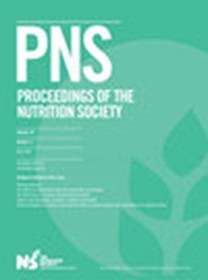营养师对英国肠易激综合征饮食管理的临床路径和实践的看法:定性研究
IF 4.5
2区 医学
Q1 NUTRITION & DIETETICS
引用次数: 0
摘要
肠易激综合征(IBS)是一种慢性、复发性胃肠道疾病,对生活质量有负面影响(1)。饮食诱发因素很常见,饮食管理是肠易激综合征治疗路径的核心,营养师是患者的主要教育提供者(2)。本研究旨在探讨营养师对英国各地临床机构肠易激综合征服务当前做法的看法。研究人员进行了半结构式定性访谈,以探讨营养师的当前做法、障碍、促进因素以及预期治疗效果。符合条件的参与者是在英国国家卫生系统(NHS)工作、专门从事肠易激综合征治疗的营养师。访谈以虚拟方式进行。对访谈进行录音,并按照智能转录法进行转录。13名专攻肠胃病学的营养师(女性12人)同意参与研究。13名营养师(12名女性)同意参与研究。营养师在全国各地的国家医疗服务系统信托机构工作(英格兰东南部3名;英格兰西南部3名;英格兰西北部2名;英格兰东北部1名;西米德兰兹郡1名;威尔士西南部1名;苏格兰中南部2名)。13 位营养师中有 10 位在肠易激综合征管理方面拥有五年以上的经验。研究发现了三大主题:1)作为肠易激综合征转诊途径一部分的营养师服务;2)与营养师服务相关的实践;3)服务对患者期望和感受的影响。每个主题都有副主题,以便于描述和解释数据。据报道,转诊给营养师的肠易激综合征患者人数不断增加,需要准确及时的肠易激综合征诊断和专业的肠易激综合征营养师,同时还需要使用数字创新技术来促进实践和获得营养保健服务。患者使用互联网作为(错误)信息来源以及教育患者的时间有限被认为是营养师实践的潜在障碍。营养师在提供饮食咨询时遵循以患者为中心的方法,并认识到患者认为与肠易激综合征相关的污名化对其感受和治疗期望的负面影响。该研究确定了可促进肠易激综合征管理中营养师服务和以患者为中心的护理的领域和实践,如指南(4)所述。本文章由计算机程序翻译,如有差异,请以英文原文为准。
Dietitians’ perspectives on clinical pathways and practice in relation to the dietary management of irritable bowel syndrome in the UK: A qualitative study
Irritable bowel syndrome (IBS) is a chronic and relapsing gastrointestinal condition which negatively impacts quality of life(1). Dietary triggers are common and dietary management is central to the IBS treatment pathway with dietitians being the main education providers for patients(2) . The aim of this study was to explore the perceptions of dietitians towards current practices in IBS services in clinical settings across the UK.Qualitative semi-structured interviews were undertaken to explore current practices, barriers, and facilitators to dietetic practice and expected treatment outcomes. Eligible participants were dietitians specialising in IBS and working in the National Health System (NHS) in the UK. Interviews were held virtually. Audio was recorded and transcribed following intelligent transcription. Data were analysed using template analysis (3) .Thirteen dietitians (n=12 female) specialising in gastroenterology consented to participate in the study. Dietitians were working in various NHS Trusts across the country (Southeast England n=3; Southwest England n=3; Northwest England n=2; Northeast England n=1; West Midlands n=1; Southwest Wales n=1 and Southcentral Scotland n=2). Ten out of 13 dietitians had more than five years of experience in IBS management. Three main themes emerged: 1) Dietetic services as part of IBS referral pathways; 2) Practices in relation to dietetic services and 3) Implications of services on patients’ expectations and feelings. Each main theme had subthemes to facilitate the description and interpretation of data. The increasing number of IBS referrals to dietitians and the need for accurate and timely IBS diagnosis and specialist IBS dietitians was reported, alongside the use of digital innovation to facilitate practice and access to dietetic care. The use of Internet as a source of (mis)information by patients and the limited time available for educating patients were identified as potential barriers to dietetic practice. Dietitians follow a patient-centred approach to dietary counselling and recognise the negative implications of perceived IBS-related stigma by patients on their feelings and treatment expectations.The study identified areas and practices which can facilitate access to dietetic services and patient- centred care in IBS management as outlined in guidelines (4) .
求助全文
通过发布文献求助,成功后即可免费获取论文全文。
去求助
来源期刊
CiteScore
15.50
自引率
0.00%
发文量
190
审稿时长
6-12 weeks
期刊介绍:
Proceedings of the Nutrition Society publishes papers and abstracts presented by members and invited speakers at the scientific meetings of The Nutrition Society. The journal provides an invaluable record of the scientific research currently being undertaken, contributing to ''the scientific study of nutrition and its application to the maintenance of human and animal health.'' The journal is of interest to academics, researchers and clinical practice workers in both human and animal nutrition and related fields.

 求助内容:
求助内容: 应助结果提醒方式:
应助结果提醒方式:


